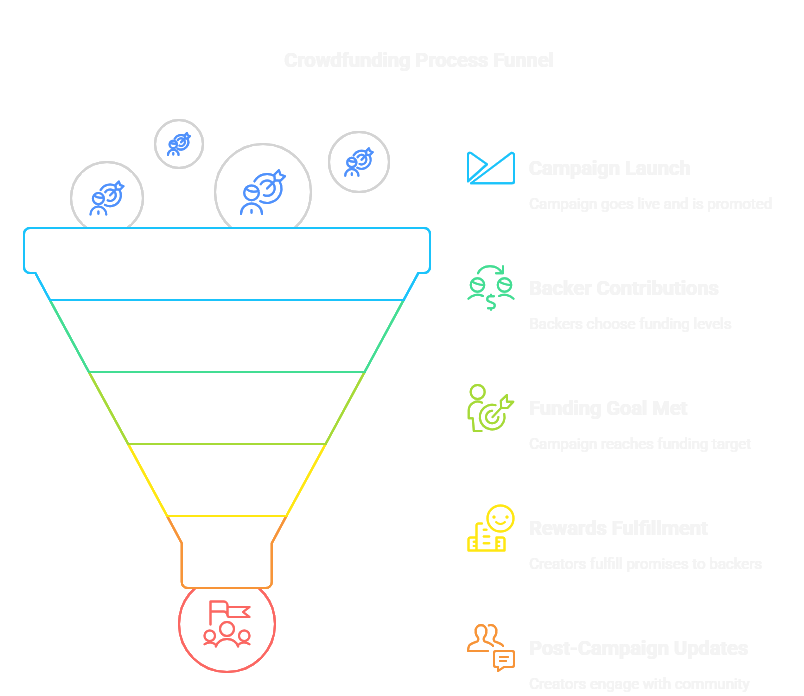Crowdfunding is a financing method that involves raising small amounts of money from a large number of individuals to fund a specific project, business venture, or cause. Instead of relying solely on traditional sources like banks or venture capitalists, crowdfunding leverages the power of community support and digital platforms to connect investors (or backers) with entrepreneurs and creators.
Here are the key points about crowdfunding:
Diverse Platforms: There are over 600 different crowdfunding platforms worldwide, each catering to specific niches. These platforms make it easy for entrepreneurs, artists, nonprofits, and individuals to seek funding for their ideas.
Expanded Investor Pool: Crowdfunding expands the pool of potential investors beyond the usual circle of owners, relatives, and professional investors. Anyone can participate, contributing even small amounts (sometimes as low as $10).
Types of Crowdfunding:
- Reward-Based Crowdfunding: Backers contribute funds in exchange for rewards or perks (e.g., early access to a product, exclusive merchandise).
- Equity-Based Crowdfunding: Investors receive equity (ownership shares) in the company in return for their financial support.
- Debt-Based Crowdfunding: Borrowers raise funds by promising to repay the money with interest over time.
- Donation-Based Crowdfunding: Supporters donate without expecting any financial return—often used for charitable causes or personal emergencies.
How Crowdfunding Works:
Project Creation:
- An entrepreneur or creator initiates a campaign on a crowdfunding platform.
- They describe their project, set a funding goal, and explain how the funds will be used.
Campaign Launch:
- The campaign goes live, and the creator promotes it through social media, email, and other channels.
- Backers visit the campaign page and decide whether to contribute.
Backer Contributions:
- Backers choose a funding level (reward tier) and contribute money.
- Contributions can be small or large, depending on the backer’s interest.
Funding Goal and Deadline:
- The campaign has a specific funding goal (e.g., $50,000).
- If the goal is met within the campaign’s timeframe (usually 30-60 days), the project is funded.
Rewards and Fulfillment:
- For reward-based campaigns, creators fulfill promises (e.g., shipping products, providing exclusive content) once the campaign ends.
- Equity-based campaigns involve legal processes to issue shares to investors.
Platform Fees:
- Crowdfunding platforms charge fees (usually a percentage of the funds raised) for hosting campaigns.
- For example, Kickstarter applies a 5% fee.
Post-Campaign Updates:
- Creators keep backers informed about progress, challenges, and milestones.
- Successful campaigns continue to engage their community even after funding.
Remember, crowdfunding isn’t just about money—it’s about building a community around your idea and turning backers into advocates. So whether you’re launching a new product, supporting a cause, or bringing art to life, crowdfunding provides an exciting way to make it happen!

